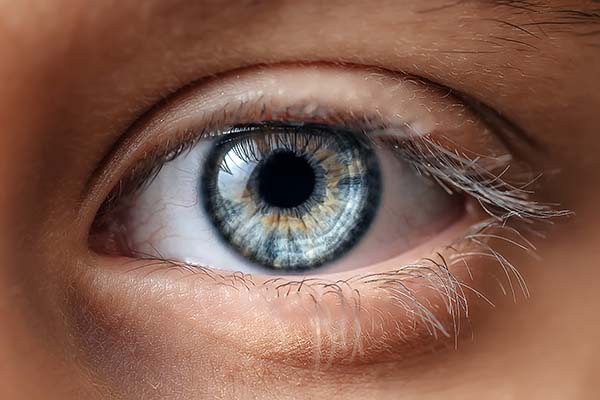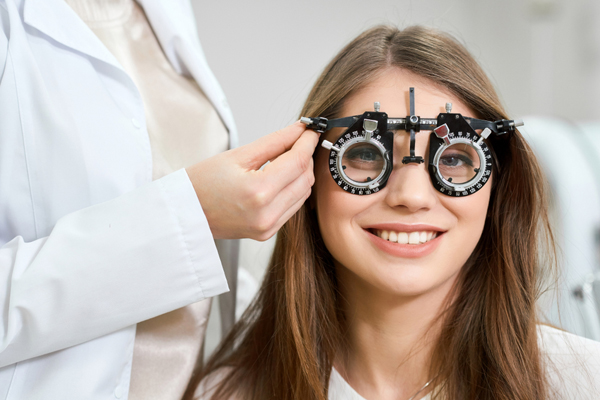Is Retinal Photography Painful?

Early signs of many eye diseases may show up on the retina, or the back of the eye. Retinal photography is a way of evaluating the back of the eye through color, high-resolution, digital photographs on which such signs may show up more easily.
A detailed review of retinal photography
This review discusses retinal photography, including what it is exactly and what to expect during the procedure. This information should help you make an informed decision as to whether or not it is right for you and help you feel more comfortable if you are scheduled for the diagnostic test.
What is retinal photography?
Retinal photography, also called digital retinal imaging, is a digital imaging of your retina (in the back of your eye). This requires high-resolution photography. It is a safe and non-invasive procedure that is offered by most eye doctors. Retinal photography is used for diagnostic purposes. It can help detect eye conditions in the early stages to avoid worsening symptoms.
Does retinal photography hurt?
Taking the images does not hurt at all. However, it does require the eyes to be dilated with special eye drops. After your eyes have been dilated, you will be sensitive to light for several hours. Because the photography takes place in a dark room, this is not bothersome until your appointment is over and you leave the office. You may need to wear dark glasses to shield your eyes from the light and have someone else drive you home. Eventually, the drugs that cause your eyes to dilate wear off and your pupils start reacting to light as usual a few hours afterward.
Why is retinal photography performed?
As digital imaging of the retina becomes more advanced, efficient, and affordable, it may be performed more often. As of now, however, it is usually not performed as a part of routine eye exams. However, if your optometrist identifies symptoms of potential eye disease as part of a routine screening, retinal photography may be ordered to get a clearer, more detailed image of the back of the eye and to confirm or rule out a diagnosis.
Digital imaging of the retina shows a number of important structures in the eye:
- Blood vessels that provide circulation to the eye
- The optic disk, where the optic nerve connects to the eye
- The macula, which allows the eye to focus and produce clear images
The following are eye conditions that retinal photography can help identify. To learn more about them and to find out how retinal photography can benefit you, it is encouraged to schedule a visit with an eye doctor.
Glaucoma
Glaucoma occurs when the pressure inside the eye increases. This compresses the blood vessels in the eye and puts pressure on the optic nerve, resulting in vision loss. Retinal photography is a great way to diagnose glaucoma in the earlier stages. This allows for earlier treatment intervention and subsequently can help reduce the risk of vision loss that is caused by glaucoma.
Diabetic retinopathy
Diabetes can damage blood vessels in the eye, causing them to leak or swell. It can also cause new blood vessels to form. Early detection of diabetic retinopathy can help prevent blindness through interventional treatment. Retinal photography is one of the most common diagnostic procedures that is used to determine if a patient has diabetic retinopathy.
Macular degeneration
Most often associated with age, macular degeneration causes a loss of central vision because of changes to the blood vessels in the macula. With wet macular degeneration, which is the more severe type, the changes are due to the development of abnormal blood vessels in the macula. With dry macular degeneration, the existing blood vessels go through changes that cause them to become brittle and thin.
If you are diagnosed with an eye disease such as this, you may continue to have retinal photography performed at routine intervals to monitor and further assess your condition. Even if you do not have an eye disease, photographing the retina offers the additional benefit of preserving a permanent record of changes in your eye over time.
Try retinal photography
Retinal photography can be performed to track changes in the eye and to diagnose ocular diseases. While the procedure itself is painless, it does require pupil dilation, which can cause discomfort for several hours until the medication wears off. If you are experiencing any symptoms of possible eye disease or it has been a while since your last examination, contact our office to schedule an appointment.
Get more information here: https://brighteyesmv.com or call Bright Eyes Optometry at (914) 668-1429
Check out what others are saying about our services on Yelp: Retinal Photography in Mt Vernon, NY.
Recent Posts
Emergency eye care is needed if you find yourself dealing with a problem with your eye that causes pain or affects your vision. Failing to treat eye injuries as soon as they are detected can lead to permanent consequences, like reduced vision or blindness. Common eye injuries that require emergency eye care include: Exposure to…
Looking for more information on eye protection? An ophthalmologist knows everything there is to know about protecting the eyes. While there are a few different types of eye care professionals, ophthalmologists are eye care professionals who have undergone additional years of education and training so they can offer their patients both medical and surgical eye…
Controlling myopia at an early age can slow down its progression. This can help prevent yearly upgrades for stronger glasses. Your optometrist can help by offering various treatments. If you want to find out how your optometrist can help control myopia, here are the details.Optometrists use atropine eye drops to achieve short-term myopia control results.…
Another word for an itchy eye is ocular pruritis. It is a common health situation in many people. Itchiness in your eyes is more than enough reason to see an optometrist. Receiving prompt treatment is important in receiving prompt relief. If you want to know what causes an itchy eye and the treatments for it,…



